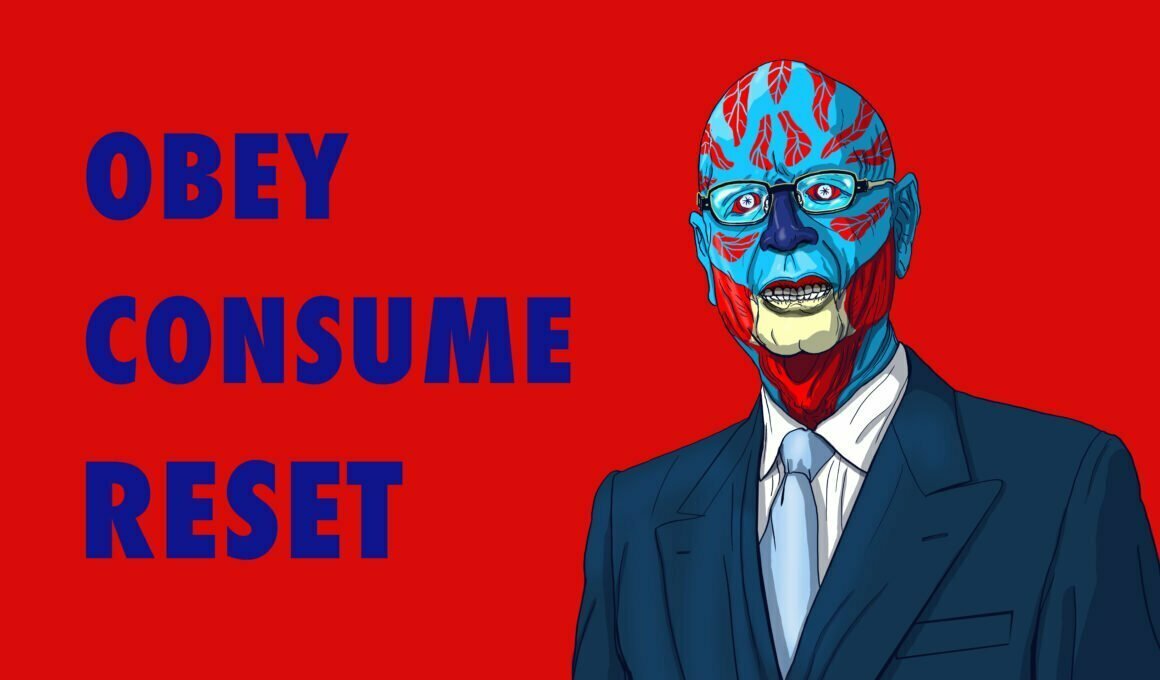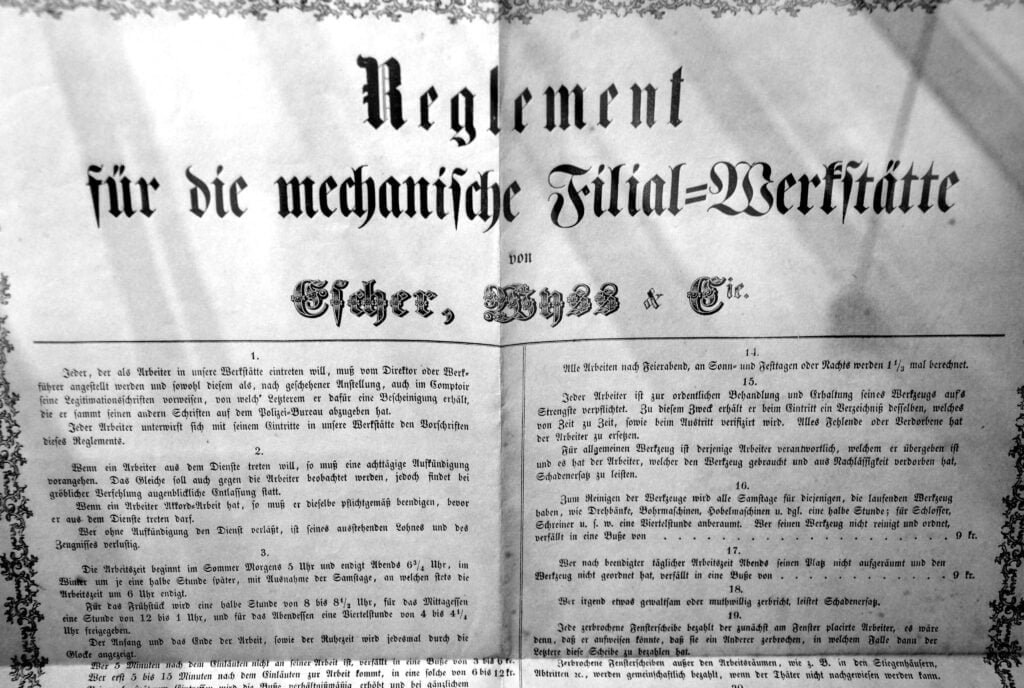Schwab Family Values


On the morning of 11 September 2001, Klaus Schwab sat having breakfast in the Park East Synagogue in New York City with Rabbi Arthur Schneier, former Vice President for the World Jewish Congress and close associate of the Bronfman and Lauder families. Together, the two men watched one of the most impactful events of the next twenty years unfold as planes struck the World Trade Center buildings. Now, two decades on, Klaus Schwab again sits in a front row seat of yet another generation-defining moment in modern human history.
Always seeming to have a front row seat when tragedy approaches, Schwab’s proximity to world-altering events likely owes to his being one of the most well-connected men on Earth. As the driving force behind the World Economic Forum, “the international organization for public-private cooperation,” Schwab has courted heads of state, leading business executives, and the elite of academic and scientific circles into the Davos fold for over 50 years. More recently, he has also courted the ire of many due to his more recent role as the frontman of the Great Reset, a sweeping effort to remake civilization globally for the express benefit of the elite of the World Economic Forum and their allies.
Schwab, during the Forum’s annual meeting in January 2021, stressed that the building of trust would be integral to the success of the Great Reset, signalling a subsequent expansion of the initiative’s already massive public relations campaign. Though Schwab called for the building of trust through unspecified “progress,” trust is normally facilitated through transparency. Perhaps that is why so many have declined to trust Mr. Schwab and his motives, as so little is known about the man’s history and background prior to his founding of the World Economic Forum in the early 1970s.
Like many prominent frontmen for elite-sponsored agendas, the online record of Schwab has been well-sanitized, making it difficult to come across information on his early history as well as information on his family. Yet, having been born in Ravensburg, Germany in 1938, many have speculated in recent months that Schwab’s family may have had some tie to Axis war efforts, ties that, if exposed, could threaten the reputation of the World Economic Forum and bring unwanted scrutiny to its professed missions and motives.
In this Unlimited Hangout investigation, the past that Klaus Schwab has worked to hide is explored in detail, revealing the involvement of the Schwab family, not only in the Nazi quest for an atomic bomb, but apartheid South Africa’s illegal nuclear programme. Especially revealing is the history of Klaus’ father, Eugen Schwab, who led the Nazi-supported German branch of a Swiss engineering firm into the war as a prominent military contractor. That company, Escher-Wyss, would use slave labor to produce machinery critical to the Nazi war effort as well as the Nazi’s effort to produce heavy water for its nuclear program. Years later, at the same company, a young Klaus Schwab served on the board of directors when the decision was made to furnish the racist apartheid regime of South Africa with the necessary equipment to further its quest to become a nuclear power.
With the World Economic Forum now a prominent advocate for nuclear non-proliferation and “clean” nuclear energy, Klaus Schwab’s past makes him a poor spokesperson for his professed agenda for the present and the future. Yet, digging even deeper into his activities, it becomes clear that Schwab’s real role has long been to “shape global, regional and industry agendas” of the present in order to ensure the continuity of larger, much older agendas that came into disrepute after World War II, not just nuclear technology, but also eugenics-influenced population control policies.
On 10 July 1870, Klaus Schwab’s grandfather Jakob Wilhelm Gottfried Schwab, referred to later as simply Gottfried, was born in a Germany at war with its French neighbours. Karlsruhe, the town where Gottfried Schwab was born, was located in the Grand Duchy of Baden, ruled in 1870 by the 43 year old Grand Duke of Baden, Frederick I. The following year, the aforementioned Duke would be present at the proclamation of the German Empire which took place in the Hall of Mirrors at the Palace of Versailles. He was the only son-in-law of the incumbent Emperor Wilhelm I and, as Frederick I, was one of the reigning sovereigns of Germany. By the time Gottfried Schwab turned 18 years old, Germany would see Wilhelm II take the throne upon the death of his father, Frederick III.
In 1893, a 23 year old Gottfried Schwab would officially depart from Germany giving up his German citizenship and leaving Karlsruhe in order to emigrate to Switzerland. At the time, his occupation was noted as being that of a simple baker. Here, Gottfried would meet Marie Lappert who was from Kirchberg near Bern, Switzerland and who was five years his junior. They would marry in Roggwil, Bern, on 27 May 1898 and the following year, on 27 April 1899, their child Eugen Schwab was born. At the time of his birth, Gottfried Schwab had moved up in the world, having become a Machine Engineer. When Eugen was around one year old, Gottfried and Marie Schwab decided to return to live in Karlsruhe and Gottfried reapplied for German citizenship again.
Eugen Schwab would follow in the footsteps of his father and also become a Machine Engineer and in future years, he would advise his children to do the same. Eugen Schwab would eventually begin working at a factory in a town in Upper Swabia in Southern Germany, capital of the district of Ravensburg, Baden-Württemberg.
The factory where he would forge his career was the German branch of a Swiss company named Escher Wyss. Switzerland had many long standing economic ties to the Ravensburg area, with Swiss traders in the early 19th century bringing in yarn and weaving products. In the same period, Ravensburg delivered grain to Rorschach until 1870, alongside breeding animals and various cheeses, deep within the Swiss Alps. Between 1809 and 1837, there were 375 Swiss people living in Ravensburg, though the Swiss population had dropped to 133 by 1910.
In the 1830s, skilled Swiss workers set up a cotton factory with an incorporated bleaching and finishing plant owned and maintained by the Erpf brothers. The Ravensburg horse market, created in around 1840, also attracted many people from Switzerland, especially after the 1847 opening of the railway line from Ravensburg to Friedrichshafen, a town situated on nearby Lake Constance on the borderlands of Switzerland and Germany.
Rorsach grain traders would make regular visits to the Ravensburger Kornhaus and eventually this cross-border cooperation and trade also led to a branch of the Zurich machine factory, Escher-Wyss & Cie, opening in the city. This feat was made plausible once a train line connecting the Swiss to the German route network was completed between 1850 and 1853. The factory was set up by Walter Zuppinger between 1856 to 1859 and would begin production in 1860. In 1861, we can see the first official patent of the manufacturers Escher-Wyss in Ravensburg of “peculiar facilities on mechanical looms for ribbon weaving”. At this time, the Ravensburg branch of Escher Wyss would be directed by Walter Zuppinger, and would be where he developed his tangential turbine and where he gained a number of additional patents. In 1870, Zuppinger along with others would also founded a paper mill works in Baienfurt close to Ravensburg. He retired in 1875 and devoted all his energies to the further advance of turbines.

At the turn of the new century, Escher-Wyss had put the ribbon weaving to one side and begun to concentrate on much bigger projects like the production of large industrial turbines and, in 1907, they sought an “approval and concession procedure” for the construction of a hydropower plant near Dogern am Rhein, which was reported in a Basel brochure from 1925.
By 1920, Escher-Wyss found themselves embroiled in serious financial difficulties. The treaty of Versailles had restricted the military and economic growth of Germany following the Great War, and the Swiss Company found the downturn in neighbouring national civil engineering projects too much to bear. The parent branch of Escher-Wyss was located in Zurich and dated back to 1805 and the company, which still benefited from a good reputation and a history lasting more than a century, was deemed too important to lose. In December 1920, a reorganization was carried out by writing down the share capital from 11.5 to 4.015 million French Francs and which was later increased again to 5.515 million Swiss Francs. By the end of the financial year of 1931, Escher-Wyss was still losing money.